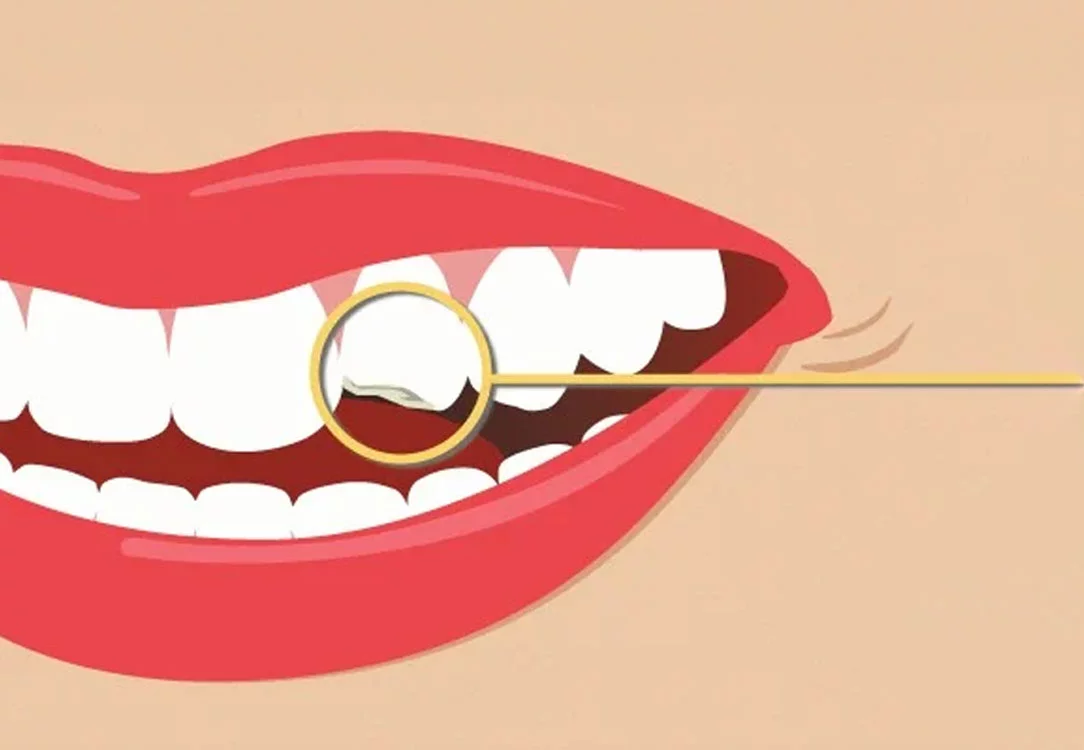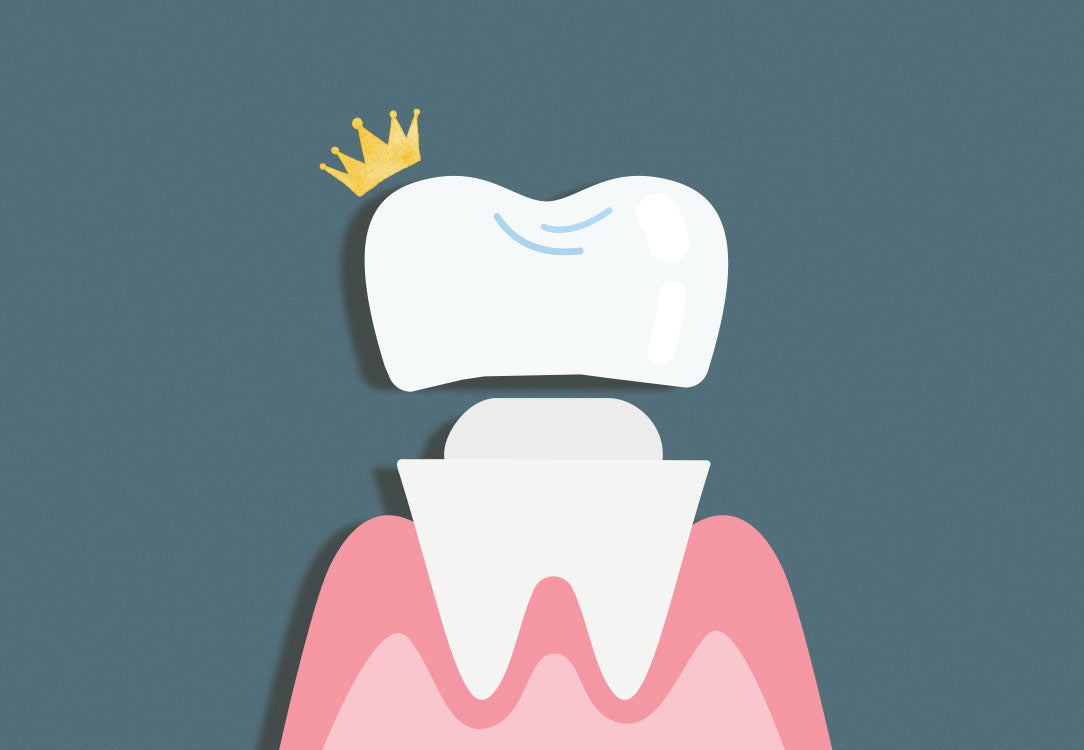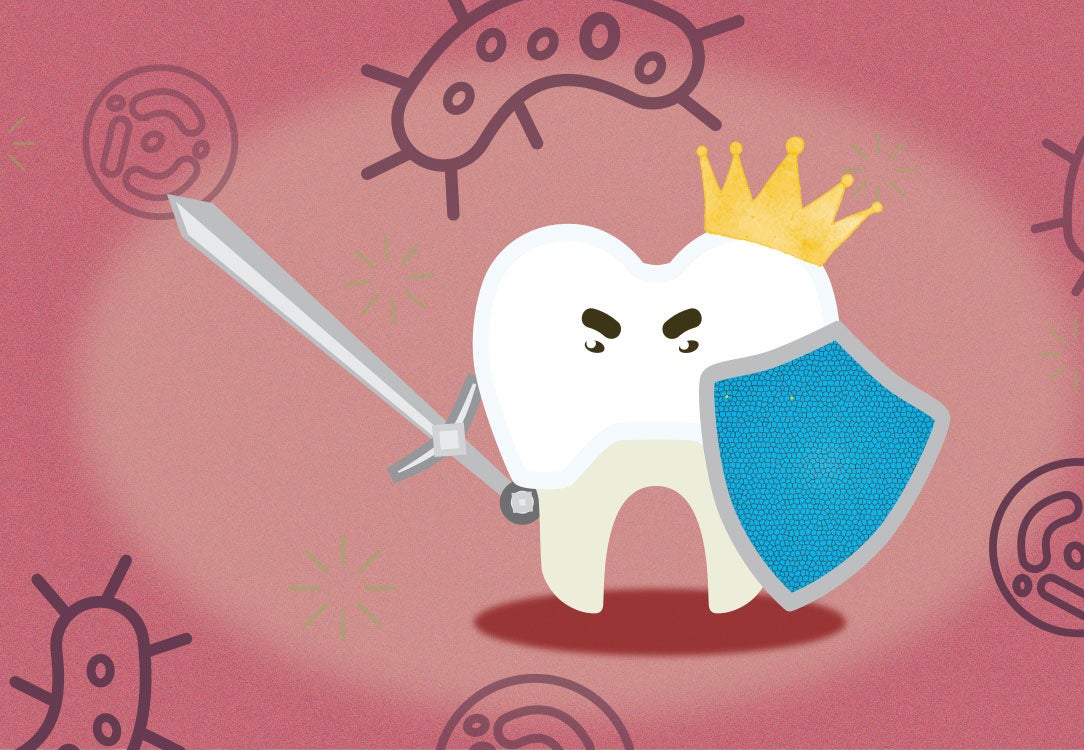How to Fix a Chipped Tooth?
Severe tooth chips and breaks will require either dental crowns or dental implants. There are other treatment options to fix a tooth for chips that aren’t as severe.
Teeth Bonding
Teeth Bonding is effective for the smallest, simplest chips. Your dentist will make a composite resin mold of the tooth. The composite is then shaped into the chip to complete the repair.
Veneers
Veneers are better suited for bigger chips. A veneer is a porcelain cover positioned on a tooth’s front. Veneers provide your teeth with a smooth and natural look.

What Is a Tooth Cap?
Dental Crown Types
There are many different types of dental crowns. They are made from a variety of materials. Some are a combination of multiple materials. Each crown type has its pros and cons. Your dentist will help determine which crown type best suits your needs.
- Porcelain Fused to Metal – These crowns are quite durable thanks to the infusion to metal. The metal framework provides added strength and makes a strong bond to the teeth. Similar to ceramic crowns, these can be prone to chipping and aggravate the adjacent teeth.
- Porcelain-Veneered Zirconia – These crowns are natural looking and quite strong. They are also a bit more affordable. But again, the porcelain makes them prone to chipping and they can aggravate the adjacent teeth.
- IPS e.max – These crowns are more commonly known as Lithium Disilicate. They don’t require a porcelain veneer. They tend to be limited to the back teeth and they aren’t as strong as other crown materials.
- Base-Metal Alloy – These, along with gold alloy, are the strongest of the crown materials. These crowns won’t fracture, they don’t cause tooth wear and tear, and they won’t aggravate the adjacent teeth. Base-metal is very corrosion-resistant and requires the least amount of teeth removal. The only drawbacks are they don’t resemble natural teeth and they can be costly.
- Gold Alloy – Gold alloy crowns are as strong as base-metal crowns. They are similar to base-metal in that they won’t fracture, they don’t cause tooth wear and tear, and they won’t aggravate the adjacent teeth. They also don’t resemble natural teeth and they can be quite costly. And yes, they will resemble a gold tooth.
What Is a Dental Implant?
Dental implants are another method used to fix a chipped or broken tooth. The implant is either a metal post or frame that is surgically attached to the jawbone beneath the gums. A dentist can then mount replacement teeth – typically crowns, a bridge or dentures – to the posts once they’ve been inserted.
- Endosteal Implants – These are installed in three steps. First, they are surgically implanted into the jawbone. After the gum has healed, a second procedure connects the post to the implant. Lastly, the replacement teeth are attached to the posts either individually or on a bridge or denture.
- Subperiosteal Implants – These implants have a metal framed that is fitted onto the jawbone below the gum tissue. The gum’s healing process fixes the frame to the jawbone. Posts that are connected to the frame stick out through the gums. The replacement teeth can then be attached to the posts.
Tooth Crown vs. Dental Implant
- Crowns Cost Less – An implant will always cost more than a crown due to the nature of the procedure. Implants require multiple appointments with an oral surgeon whereas a crown is a faster procedure. Also, dental insurance plans tend to cover crowns more than implants. This leads to greater out-of-pocket expenses for the patient.
- Implants Have Longevity – Dental implants are viewed as permanent teeth whereas crowns need to be replaced every 10 to 15 years. So opting for an implant could actually be less cost prohibitive if the patient falls on the younger side.
- Implants Require Crowns – An implant is a screw-like post inserted into the jaw where the tooth once was. The implant still requires some sort of device to cover and protect the post. In many cases that is a crown. So, if a patient opts for dental implants, know that fitting the implants with crowns will be part of the procedure. And, there will be a cost that goes along with the crown too.
- Crowns Complement Root Canals – A root canal is one way of preserving your natural teeth. A tooth’s natural roots can help maintain correct spacing and good oral health. A crown is used to top off a root canal.

Tooth Crown After Root Canal: What to Know
- Weakened Tooth – Even though a root canal fixes a fix, the decaying process and the root canal procedure will have weakened the tooth. The tooth can crumble from chewing or grinding due to its weakened state. A crown strengthens the tooth to prevent further damage.
- Tooth Sensitivity – Tooth sensitivity is one side effect of pulp removal associated with a root canal. The tooth can become extremely sensitive to hot, cold, acidic, and sugary foods. Pressure associated with chewing can also exacerbate tooth sensitivity.
- Tooth Discoloration – Tooth decay or the root canal process can cause a tooth to become discolored. A crown would improve the tooth’s cosmetic appearance.
- Prior Tooth Restoration – Chances are high that the tooth that the root canal is being performed on will have future issues if it had previously been treated for decay. A crown would prevent future infections by covering the tooth.
Find a Dentist Near You
Consult your dentist to discuss the best options for fixing a chipped tooth. Or if you need help and you're asking where to find a dentist near me, visit The Smile Generation to find a dentist near you for your chipped tooth treatment needs. You can read patient reviews, peruse staff bios, and schedule an appointment online with a click of your mouse.
Find your trusted, local dentist today!
Sources
- https://www.colgate.com/en-us/oral-health/dental-emergencies-and-sports-safety/fractured-and-broken-teeth
- https://familychoicedentistry.com/blog/do-you-always-need-a-crown-after-a-root-canal/
- https://www.myauroradentist.com/dental-implant-vs-crown-pros-and-cons/
- https://my.clevelandclinic.org/health/treatments/10923-dental-crowns
- https://www.colgate.com/en-us/oral-health/bridges-and-crowns/different-types-of-dental-crowns
- https://www.colgate.com/en-in/oral-health/implants/what-are-dental-implants?gclid=EAIaIQobChMIx43rsKib9AIVdSs4Ch0S7A_VEAAYAyAAEgKtg_D_BwE&gclsrc=aw.ds
- https://www.webmd.com/oral-health/guide/repairing-a-chipped-or-broken-tooth
Smile Generation blog articles are reviewed by a licensed dental professional before publishing. However, we present this information for educational purposes only with the intent to promote readers’ understanding of oral health and oral healthcare treatment options and technology. We do not intend for our blog content to substitute for professional dental care and clinical advice, diagnosis, or treatment planning provided by a licensed dental professional. Smile Generation always recommends seeking the advice of a dentist, physician, or other licensed healthcare professional for a dental or medical condition or treatment.








